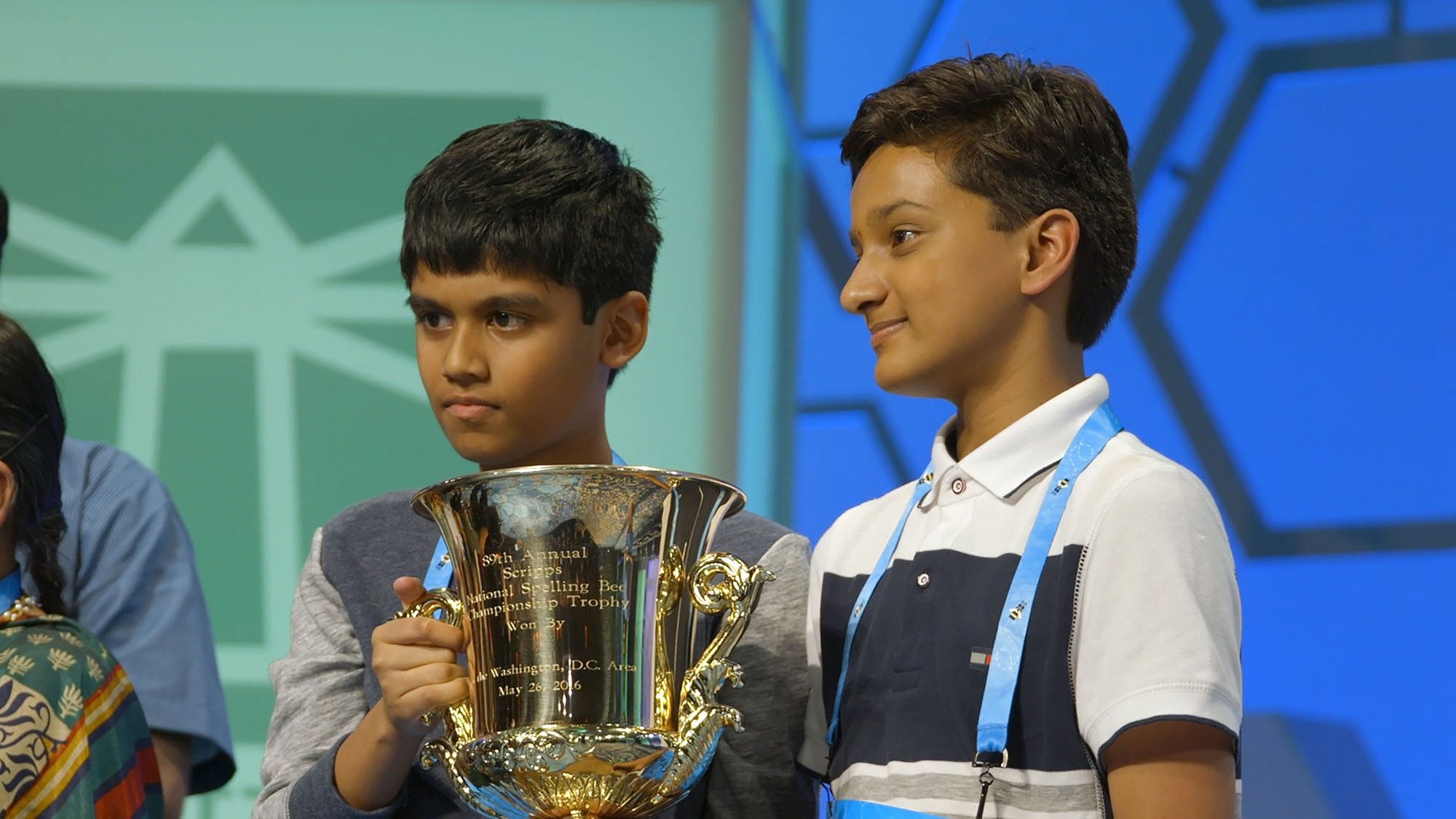
Breaking the Bee: How a 20-year Indian-American dynasty was captured on film
Breaking the Bee chronicles the ups and downs of four Indian-American students as they compete to realize their dream of winning the Scripps National Spelling Bee and cement their place in the two-decade dynasty of Indian-Americans dominating the iconic competition. The film gained critical acclaim since its world premiere at the 2018 Cleveland International Film Festival and is set for its NYC premiere at the New York Indian Film Festival on Saturday, May 12.
The Scripps National Spelling Bee is a 90-year-old competition and since 1999, all but four contest winners have been Indian-American, and of the children who make it to Scripps each year, roughly 25% come from families of Indian descent. This is something of an anomaly, as Indian-Americans make up just 1% of the US population. Film Daily caught up with director and co-writer Sam Rega to find out more about the significance of this documentary that sheds light on the fascinating story and presents insight into this slice of life in America.
Breaking the Bee marks Rega’s third documentary as director, his previous works including esports documentary League of Millions and Miami Noir: The Arthur E. Teele Story – an hour-long film examining the events that led up to the suicide of Miami City Commissioner, Arthur Teele, Jr. When discussing what inspired Rega to cover the story of the Scripps National Spelling Bee, the director described how co-writer and producer Chris Weller approached him with some stats about the event and explained the two-decade spelling bee dynasty.
“I was instantly hooked. After months of research, attending bees, and speaking to families, we realized this was more than a coincidence – it was a perfect storm of events. We were intrigued that this was a story that people hadn’t heard of, yet it was happening right before our eyes. I’m also fascinated by stories of people stretching themselves to the limits mentally and physically. In this case, we are watching children achieve incredible success at such a young age.”
This so-called storm of events originates in 1965 with the change in immigration laws that allowed for educated immigrants to enter the United States. “Without giving away too much of the film, it was then a combination of seeing Indian-Americans win, including the first winner in 1985, Balu Natarajan,” noted Rega.
There are also two Indian-only minor league spelling bees, including the North South Foundation – which began hosting bees in 1993 – and the South Asian Spelling Bee started in 2008, which is also the beginning of the consecutive streak of Indian-American winners. “Beyond these chronological points, you also have to consider the role that families play in helping their children; there’s a greater emphasis on academics and linguistics as well.” All of this came together to see 18 of the last 22 winners since 1999 be of Indian descent.
The film itself follows four students and Scripps National Spelling Bee competitors to provide an inside look at their studies, family life, and spelling bee entries. “From the beginning, we knew we wanted to showcase spellers at different stages of their careers,” mused Rega. “We spent months researching, attending spelling bees, and speaking with families.”

One of their first interviewees was 7-year-old spelling phenom and Mensa member Akash Vukoti, who was preparing to be the first 1st grader at the 2016 Scripps National Spelling Bee. Next up, numerous families kept coming up because of the number of years they’d spelled, which is what led Rega & Weller to Shourav Dasari & Tejas Muthusamy, who are both 14 and in the final year of eligibility for the Scripps National Spelling Bee.
“Both of these boys represented the ‘veterans’, but each had their own unique story to tell,” said Rega. Last but not least, the pair chose Ashrita Gandhari as they wanted someone who had never been to the Scripps National Spelling Bee and she came on their radar as a “speller to watch”.
As the documentary follows these four subjects in the context of the competition, the viewer is taken on a journey beyond knowing words in the dictionary or winning a trophy. The spellers make huge sacrifices to learn the benefits of hard work, dedication, and time management and grow an understanding of how to react in situations of victory and defeat. Rega described how their intention from the beginning was to shed light on and celebrate this incredible phenomenon that was happening right before their eyes.
This film will open the eyes of people who think these parents are ‘tiger parents’ who force their children to study and participate in spelling bees. It will open the eyes of people who wrongly believe that the success of these children is from genetics. It’s a slice of life in the United States and it’s families taking part in something that they love, doing it together, and seeing the benefits of hard work.
As Rega and Weller entered production, the 2016 election came and went, meaning the film also resonated more as the debate around immigration and Americanness grew. One particular scene is poignant as it discusses the racist backlash the children receive on social media and in the comments sections.
“This is a dark side of our country and even worse that children are subjected to it. We want this film to be a reminder that we are all American,” added Rega. But most of all, the creators hope the documentary inspires people of all ages to achieve and to reach for their dreams, while offering a fascinating look at this phenomenon and what has caused it.



